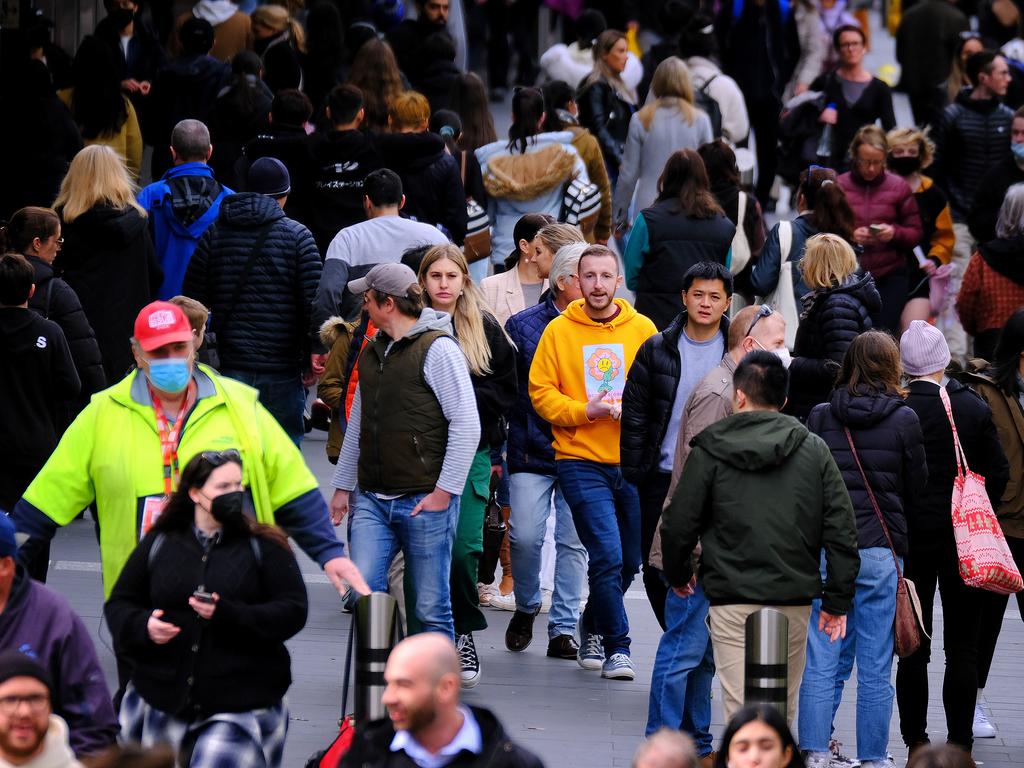Lesson for rogue Liberals: disunity is still death


Still, they emerged from their confusion to give Australia nearly 12 good years of centre-right government under John Howard, who became our second longest-serving prime minister. That’s because Howard outlasted rival Andrew Peacock, saw off renegade Queensland premier Joh Bjelke-Petersen and won the internal argument in favour of smaller, leaner government and stronger, more aspirational citizens (and his conservative instincts kept the small moderate rump in the party room in check).
The challenge for the federal opposition now is that some of its members seem to prefer the government’s policies to their own, even though the Coalition had a higher primary vote than Labor. It makes you wonder whether they’re in the right party. Tasmanian Liberal MP Bridget Archer (a floor-crosser from the previous parliament) said last month she wanted to “work with” the Albanese government to establish a federal anti-corruption body and was considering supporting Labor’s climate change legislation. This week NSW Liberal senator Andrew Bragg (who earlier had threatened to defect over religious discrimination legislation) said he was open to crossing the floor to support Labor’s 43 per cent emissions reduction target. And Liberal Senate (and self-styled moderates) leader Simon Birmingham has said leader Peter Dutton’s opposition to a legislated emissions target was a “captain’s call” that would still have to survive a shadow cabinet and party room process. (Sorry, Simon, but you’re wrong. Liberal practice is that what the Coalition took to the election stands as policy unless it’s changed.)

Defeat disunites the defeated, as Robert Menzies once observed. New oppositions usually struggle to work out why they lost. Was it an unpopular leader, a bad campaign, a poor record in government or a rejection of the party’s basic orientation? And what is the appropriate policy response: to accept defeat and wave through the new government’s policy initiatives or to continue to fight for your pre-election positions? Are parliamentarians akin to footy players, who might be on one team or the other but really just want to “play politics”; or is it more like a vocation, where you’re in it for the cause rather than a career?
Even good governments eventually lose because they run out of ideas and their leaders grow stale. The “it’s time” factor certainly counted against the Morrison government, notwithstanding the former prime minister’s attempt to claim a second term for himself rather than a fourth term for the Coalition. Still, the main reason the government lost was not its age but its failure to settle on whether it was a centre-right government under Tony Abbott or a centre-left government under Malcolm Turnbull. Eventually it became a Labor-lite government under Scott Morrison, spending massively to manage the pandemic, trying to match Labor’s net-zero green zealotry, and walking away from the values and culture fight in which the hard-left has tried to undermine our country’s Judaeo-Christian heritage.
The Albanese government has started better than expected but there’s every reason to think it could be in trouble by the next election. Wages could be struggling to keep up with inflation. Home buyers could be under mortgage stress as interest rates rise. Growth is likely to be sluggish with ongoing cost pressures as supply chains diversify away from China. The budget is unlikely to be able to accommodate Labor’s instinct for more spending on social welfare plus the need for more spending on defence. By 2025, with at least two more big east coast coal-fired power stations closed, it might be all the government can do to keep the lights on.
That’s why it’s important for the Coalition to clarify quickly what it stands for and what it would do differently should it return to office. Especially against a new government, the opposition’s job is to be a clear alternative rather than a weak echo. There are three issues that will provide an early test: a legislated 43 per cent emissions cut by 2030; the constitutionally entrenched Indigenous voice to the parliament; and a federal anti-corruption watchdog.
There are two big problems with Labor’s approach to climate change: first, it puts reducing emissions ahead of other important objectives such as preserving jobs and supporting key exports such as coal and gas; second, legislating targets doesn’t just restrict the ability of future governments to respond to changing circumstances but it also provides more grounds for judicial interference in what should be the province of the democratically accountable executive government. To oppose this should be a no-brainer for a Coalition that has won every election in which climate change was a big issue between the parties.
If what’s needed is a special entity to drive better outcomes for Indigenous people, there’s no need for constitutional change, as the creation of the Aboriginal and Torres Strait Islander Commission by the Hawke government shows. But advocates for a voice want an entity that can’t be abolished readily for incompetence and corruption (as ATSIC was) and that derives its authority from the Constitution rather than the parliament, which would give this proposed race-based body similar standing. To oppose a voice as unnecessary (because there are 11 Indigenous voices already in the parliament), as divisive (because it will second-guess policy that governments are elected to deliver for all Australians on an arbitrary “race” measure) and as racist (because only one racial group will have the benefit of a special voice) likewise should be a no-brainer for a liberal-conservative party.
On the matter of an integrity watchdog, when this proposal was raised during one of the leaders’ debates, neither Morrison nor Anthony Albanese were able to cite federal examples of corruption as opposed to claimed incompetence and political favouritism.
The problem with a federal integrity commission (effectively a standing royal commission that determines its own investigations and cross-examines witnesses in public) is it will create a quasi-judicial process for matters that should be dealt with through parliament and courts, where there are sufficient powers already.
If the Coalition were not to oppose any of these measures to “keep the team together”, it will end up part-owning their consequences. If it opposes them and there are floor-crossers, Coalition division will be the headline. While crossing the floor is not an unpardonable offence for the Coalition (unlike Labor), there’s a world of difference between crossing the floor against a tactical retreat of the leadership and crossing the floor to support Labor. One may be a sign of principle; the other of confusion about one’s political identity. Winning the next election is not beyond Dutton – but only if all his MPs remember they’re fighting Labor, not waging a civil war. If it’s the latter, then they should cross the floor and stay there.
Peta Credlin is the host of Credlin on Sky News, 6pm weeknights.







“If you can’t govern yourselves,” Bob Hawke said of his political opponents in the mid-1980s, “you can’t govern the country.” In those days the Liberal-National opposition was a divided rabble, split by leadership rivalry, wet versus dry philosophical differences and the Joh for PM campaign.